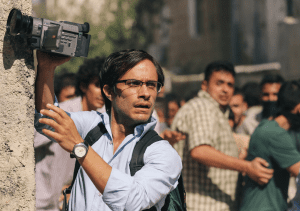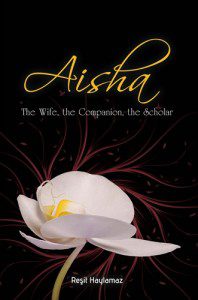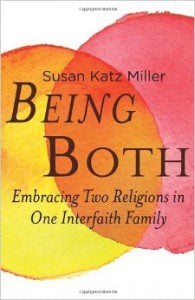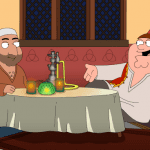 |
|
He wants you to dance
|
The night of June 5 was amazing for many reasons, not the least of which was the fact that I got in a cab in midtown Manhattan at 7:40 pm on a Friday evening and miraculously made it to BAM, the Brooklyn Academy of Music by 8:05 pm in time for the opening night of the Muslim Voices Festival. On the way, my mind was on Obama’s Cairo speech and I began a conversation with the cab driver about it.
He hadn’t heard the speech but, as a fellow Muslim, was duly impressed with the points I highlighted, such as Obama beginning with “Assalamu Alaykum” and the terms of respect he used – “peace be upon him” after mentioning the Prophet’s name and using “Holy” before mentioning the Quran. The driver said, “Obama, he’s not Muslim, but he is a good man. He’s honest, that’s good.”
BAM’s big electronic billboard had a huge image of Youssou N’Dour, the star of the evening’s event and the opener for the festival. His image brightened up the industrial landscape on a gray evening, and the cab driver – who was not only Muslim, but Senegalese – asked if I was seeing N’Dour perform. When I said yes, he was a little envious, but happy that I was going. After all, N’Dour is a source of Senegalese pride.
The event, co-sponsored by BAM, Asia Society and NYU Dialogues, began with a welcome by Brooklyn borough president Marty Markowitz. His greeting? “Assalamu Alaykum.” Brooklyn officials have strong relationships with the borough’s many Muslims and, though he probably would have said it before Obama’s Cairo speech, it definitely had more cache now.
I was not expecting the next guest, described by BAM’s President as the “owner in the house.” New York City Mayor Michael Bloomberg was well-received (many Muslims here do like him) and made a short but warm speech mentioning NYC’s 600,000 Muslims and the importance of their contributions to the city.
The performances began with Ushaaq Ensemble performing Salaam Suite by Iraqi-American composer Amir ElSaffar which began with a milad (singing praises of the Prophet PBUH). This was the ensemble’s world premiere and included US-based performers from India, Iraq, Palestine, Syria and Uzbekistan. All performed using a common approach to melody known as maqam (Arabic) or raaga (Hindustani classical).
The Ushaaq Ensemble was followed by a Quranic recitation, a traditional “a capella” like performance led not by a musician, but by Imam Shamsi Ali, a Malaysian, and the Imam of Manhattan’s 96th Street mosque. Imam Ali was accompanied by Issah Lamin Yusif, a Ghanaian, up in a box seating area; and Mohammed Amanul Haque, a young Bangladeshi, in the orchestra section seating area. They each started off with individual recitations and then, as a trio, reciting in unison. Zeyba Rahman, the festival’s senior project advisor, had envisioned this and found herself awed by the result – as did the audience.
At around 9 pm, the star of the evening Grammy-winning Youssou N’Dour and his Super Etoile band came on stage. N’Dour performs mbalax in Wolof; also singing in French and English. Mbalax, a popular style of music in West Africa is, according to N’Dour’s website, a “combination of traditional griot percussion and praise-singing with Afro-Cuban and Haitian kompa arrangements.” N’Dour’s musical accompaniments range from the Western classical and electric guitars to the tama (talking drums) and the sabar (Senegalese conga) .
N’Dour greeted the multi-cultural audience (a Jewish couple from the Upper West Side whose daughter is part of the Seeds for Peace program sat next to me) with “Assalamu Alaykum” and said, “Islam means peace, peace unto you.”
N’Dour, a deeply pious Sufi, is one of the most celebrated African musicians in history. A world music superstar, N’Dour has collaborated with Western musicians including Paul Simon (on his album Graceland) and Peter Gabriel (on his album So). He is controversial, however, and in 2004 came under attack in Muslim countries for his critically-acclaimed and award-winning CD “Egypt.” The album was deemed “blasphemous.”
N’Dour says that he is trying to change the image of Islam from the one of a religion of “extremists” and of “fear” to one of peace, joy, song and love. During Friday’s performance he insisted several times, “this is Islam, a religion in which people can sing, dance, even enjoy.”
N’Dour performed songs like “New Africa,” which describes an Africa of beauty, love and happiness – not poverty, disease and AIDS – and “Mame Bamba” devoted to his religious leader, Cheick Amadou Bamba . He also mentioned his new film “I Bring What I Love,” a documentary based on the making of the album Egypt and screened at BAM on Saturday (the film will be released elsewhere in New York City on June 12). He also did a special sequence with Hassan Hakmoun, an NYC-based Moroccan-born musician who plays the sintir, an African bass lute while doing the Gnawa foot dance.
For anyone who has been to a concert in a performance hall, it is hard to be seated as the tempo of the songs picks up. The Senegalese in the audience, along with other Africans and die-hard N’Dour fans, didn’t wait for an invitation and just started dancing in the aisles. The rest of the audience followed only when N’Dour’s drummer said, “Youssou sing, you dance. Come on everyone.”
Two thousand people were up on their feet, waving their hands and moving (some more, some less) to the music of a diverse Muslim voice. As N’Dour says “the music brings them and then you can deliver your message.”
Hearts were won, walls were broken, and interest was created in just one evening, with nine more to follow. It was a big night for cultural diplomacy.
(Muslim Voices: Arts and Ideas, a ten-day festival and two-day academic and policy conference in New York City, continues through June 14, 2009)
Zeba Iqbal is a member of the Muslim Voices: Arts and Ideas’ Community Advisory Committee. Zeba is also the Vice-Chair of CAMP (Council for the Advancement of Muslim Professionals) and an active social and community networker and activist for the Muslim American community. Zeba lives in NYC and works at Princeton University.











